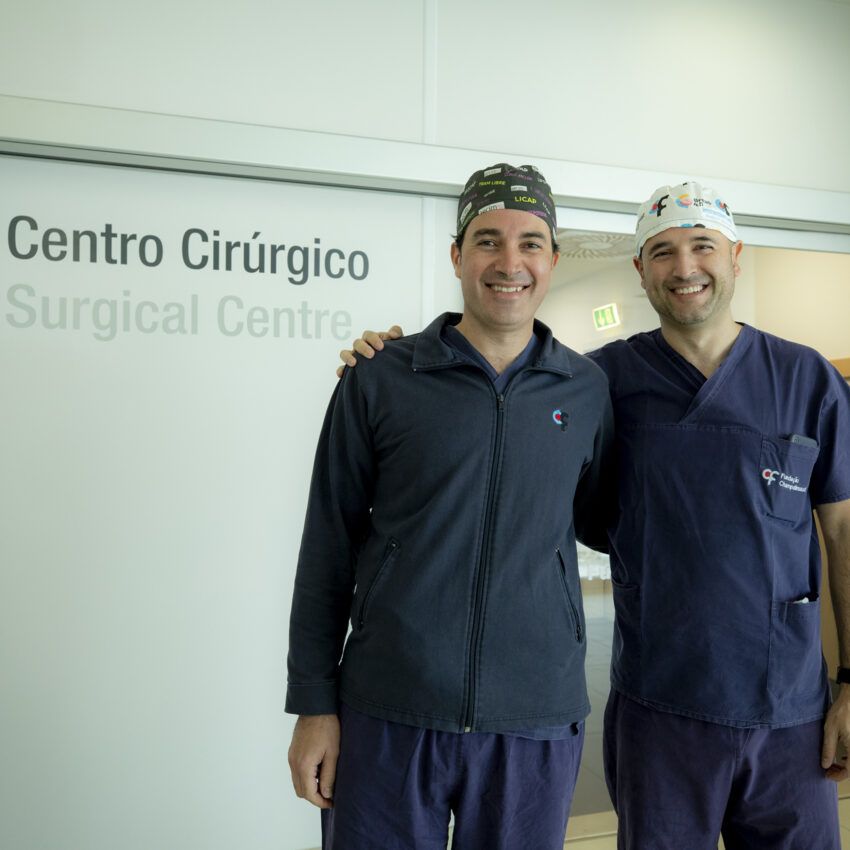Surgery in the metaverse: For the first time, breast cancer surgery took place remotely. One doctor was on site, with the patient. The other was 900 kilometers away in a different country.
In Lisbon, at the Breast Unit of the Champalimaud Foundation, surgeon Dr Pedro Gouveia was in the theatre. Spaniard Dr Rogelio Andrés-Luna, was overseeing and guiding from the University of Zaragoza, in Spain.
Thanks to the metaverse, the operation took place as if the two surgeons were in the same room.
Dr Gouveia wore mixed reality goggles – the Hololens 2. Not only can he see the patient in front of him. But also, he can read information projected onto the inside lens of the goggles. Like Terminator, but working to save a life, rather than extinguish it.
Dr Gouveia is a pioneer in metaverse surgery. He has been using Hololens goggles to perform breast cancer surgeries for some time. While at the Champalimaud Foundation, he developed a digital, non-invasive methodology that lets surgeons locate the tumor, as if the breast tissue around it was invisible.

Dr Andrés-Luna was 900 km from the operation site. In fact, he was on the stage at the Congress of the Spanish Association of Breast Sugeons. He demonstrated, with Dr Gouveia, the newest way to perform remote surgical supervision.
All Dr Andrés-Luna needed was a laptop. It was linked to Dr Gouveia’s Hololens through a private 5G network, using German software. Despite the distance between the two doctors, they reported that everything went well, as if the supervising surgeon was standing next to the performing surgeon.
Latency
What would happen if there was a lag in the information? How did the surgeons synchronize their actions with several seconds elapsing between what one was doing and the other seeing?
By not using 4G or Wifi technology. They used 5G. Dr Gouveia said that, “5G pulverizes latency, reducing it to a few milliseconds. That is why it was so crucial in the context of our experiment.”
Said Dr Gouveia, “We performed the first live experiment in the world, during breast cancer surgery, using what we call ‘remote proctoring.’”
Dr Gouveia feels that remote supervision has the potential to become a main feature of future operating rooms. 5G makes remote proctoring an absolutely reality.
Dr Andrés-Luna said, “I provided indications to my ‘apprentice.’ I was able to indicate the sites where he needed to be extra-careful, and show him images or videos. We were in constant audiovisual contact.”
The doctors relied on big phone companies to make the operation work. Altice Portugal, on the Champalimaud Foundation side. Telefónica on the Spanish side. The operation’s success was a proof of concept, and Dr Gouveia says that it will change the way surgery is conducted in the future. The potential it has for the supervision of new surgeons was incredibly valuable.
Surgery in the Metaverse: Training
Dr Gouveia said that at the moment, once young surgeons finish their training, they make their surgical debuts without any supervision. This is especially true in remote places or countries. Sometimes, they can be the only qualified person to perform surgery. “Their operations can be recorded and subsequently assessed, but during the surgical act they are on their own, and in need of help.”
Dr Gouveia says that the technology can be used for surgery students to remotely attend surgical operations. Just like they were in the room.
“The breakthroughs that immersive technologies will bring, through remote mentoring/proctoring, open a new era: that of the use of the so-called ‘metaverse’ in post-graduate medical education. The metaverse is defined as Internet access via augmented, virtual, mixed, and/or extended reality through a headset, and is already considered to be the next generation mobile computing platform.”
Got something to say about surgery in the metaverse or anything else? Write to us or join the discussion in our Telegram channel. You can also catch us on Tik Tok, Facebook, or Twitter.
Disclaimer
Following the Trust Project guidelines, this feature article presents opinions and perspectives from industry experts or individuals. BeInCrypto is dedicated to transparent reporting, but the views expressed in this article do not necessarily reflect those of BeInCrypto or its staff. Readers should verify information independently and consult with a professional before making decisions based on this content. Please note that our Terms and Conditions, Privacy Policy, and Disclaimers have been updated.

